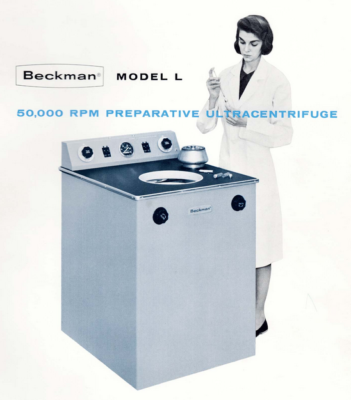Antibiotic gut punch, eggs improve HDL, a use for chloroquine, and more
26 May 2022
Posted by Andrew Kantor
How Mickey Mouse stays so young
Hydroxychloroquine may not help treat Covid-19, but its more-toxic cousin, chloroquine, has an interesting effect: It helps mice live longer. A group of European researchers found that…
… chloroquine administered in drinking water at a dose of 50 mg/kg extended the median lifespan of middle-aged NMRI male mice by 11.8% and the maximum life span by 11.4%.
They don’t quite understand why — they expected it to decrease their lifespans, but the working theory is that it somehow mimics the effect of a calorie-restricted diet. “Clearly,” they write, “further studies are needed.”
Known unknowns
The title: “A Longitudinal Study of COVID-19 Sequelae and Immunity: Baseline Findings”
The gist: “No, we still don’t know what causes long Covid.”
Now witness the firepower of this fully armed and operational federal law*
Back in February, FTC commissioners deadlocked on whether to investigate PBM practices. And while that’s expected to change with the appointment of a tie-breaking commissioner earlier this month, two U.S. senators aren’t waiting. Maria Cantwell (D-Wash.) and Chuck Grassley (R-Iowa) have introduced the Pharmacy Benefit Manager Transparency Act …
… that would empower the Federal Trade Commission to increase drug pricing transparency and hold Pharmacy Benefit Managers accountable for unfair and deceptive practices that drive up the costs of prescription drugs at the expense of consumers.
The PBMs’ trade association, PCMA, said the usual stuff: Costs will go up, patients will suffer, oceans rise, empires fall … yada yada yada. Translation: ‘Do what we say and no one gets hurt.’
Teva recall
In case you missed it, Teva has recalled one lot of its 0.5-mg anagrelide capsules because the capsules may not dissolve properly.
It’s lot #GD01090, NDC 0172-5241-60 — but it expired last month, so there’s probably not much around.
IBD: Antibiotic side effect?
As the thrill of Digestive Disease Week continues, the latest news to emerge comes from medical researchers at NYU. Antibiotics, it seems, may be linked to inflammatory bowel disease — Crohn’s disease and ulcerative colitis — at least for patients 60 and older.
For those folks, they say, nature is more important than nurture; family history isn’t an issue, “so it’s really something in the environment that is triggering it.”
And that something, they’re thinking, is (are?) courses of antibiotics. Based on analysis of the health records of 2.3 million shifty Danes, they found this:
After one prescription, patients were 27 percent more likely than those with no antibiotic use to be diagnosed with inflammatory bowel disease. With two courses, the risk rose by 55 percent and with three courses it rose by 67 percent. With four courses, risk rose by 96 percent; and with five or more, seniors were more than 2.3 times, or 236 percent, more likely to receive a new inflammatory bowel disease diagnosis than those with no antibiotics in the previous five years.
A bit about cannabis
Hard to compete
One justification for legalizing marijuana was that states could tax sales and get themselves a piece of the action. Another was that it could help put pot dealers out of business (and reduce crime) by cutting out the need for a black market.
Both make sense … unless you take one too far, and the other not far enough. Which is a roundabout way of saying that a new study finds that black markets for pot are thriving even where it’s legal. Why? Convenience (not enough stores because of regulations), and price (high taxes mean high list prices).
Out of the frying pan into a slightly better frying pan
In states where marijuana is legal (or decriminalized), young people cut back on alcohol, pain-meds, and cigarettes. That’s what a team from the University of Washington and local health departments found when they analyzed five years of surveys of people 18–25 years old.
In this new effort, the researchers have found that rather than serving as a gateway drug, use of marijuana appears to lead to reductions in use of other drugs, at least for young people.
Good eggs
The latest good-for-you/bad-for-you study on eggs is from 2018, and it found they’re good for you: “[T]hose who ate eggs daily […] had a substantially lower risk of heart disease and stroke.“
But why? The answer, it seems, is a protein called apolipoprotein A1. Eating eggs gives you more of it, and “apolipoprotein A1 [is] a building-block of high-density lipoprotein.”
These individuals especially had more large HDL molecules in their blood, which help clear cholesterol from the blood vessels and thereby protect against blockages that can lead to heart attacks and stroke.
Before you ask, yes, we checked — this study (out of China) wasn’t funded by Big Egg. It’s legit.
Check your attic
Got any old centrifuges hanging around? Specifically, one made by Beckman? The company is holding a contest to find the oldest one around; the current record holder is from 1967. (Don’t get too excited, though — the prize is a 50% discount off the purchase of up to $50,000 of new centrifugal hardware.)

The Long Read: Catch Me if You Can edition
How bad is drug counterfeiting? A new study looked to FDA records to find out. It’s kind of a big deal.


